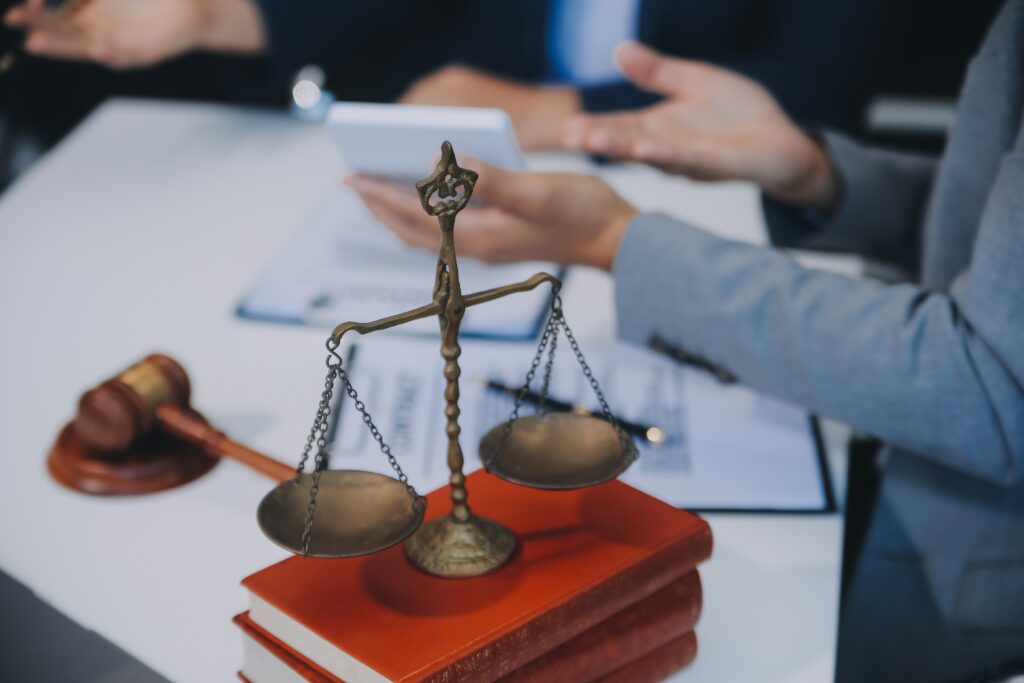Personal injury lawsuit can be complex and intimidating, but understanding the steps involved can help demystify the process and prepare you for what to expect. Knowing the procedure can significantly affect how effectively you manage your case regardless of the type of incident you’ve experienced and the injuries you’ve sustained.
When you’ve suffered harm and wish to seek justice, do not hesitate to discuss your situation with an experienced Ontario personal injury lawyer. An attorney is the best ally throughout your legal battle and will work tirelessly to get you the case result you deserve.
What is Personal Injury?
“Personal injury” refers to the physical and psychological harm a person suffers due to another party’s negligence, recklessness, or intentional actions. When you’ve suffered harm at the hands of another, you may have the right to pursue justice and financial compensation for your injuries, expenses, and losses.
Personal injury law is the specific branch of civil law that deals with cases where individuals sustain injuries as a result of a third party’s actions. This area of law focuses on helping injured parties hold at-fault parties accountable for the wrongdoing and obtain fair monetary recovery.
Common Types of Personal Injury Cases
Personal injury cases can arise from various situations where someone is harmed due to another party or entity’s wrongful actions or omissions. Some of the most common types of personal injury cases involve:
- Vehicular collisions: Car, truck, and motorcycle accidents are among the most common incidents resulting in personal injury lawsuits. These can involve collisions between vehicles but also accidents with pedestrians or cyclists.
- Slip and fall accidents: These incidents occur when someone slips or trips and falls on someone else’s property due to hazardous conditions like wet floors, uneven surfaces, or poor lighting.
- Workplace accidents: These accidents can involve injuries sustained on the job, such as falls, machinery accidents, or exposure to harmful substances. Depending on the situation, these accidents might be covered by workers’ compensation insurance, but personal injury claims can also be involved.
- Dog bites: If a dog attacks or bites someone, the owner may be held responsible for the resulting injuries, mainly if they were negligent in controlling their pet or if the dog had a history of aggression.
- Wrongful death: When someone dies due to the negligent or intentional actions of another person, their survivors may file a wrongful death claim, which is a type of personal injury claim, to seek compensation for their loss.
If you’ve suffered an injury by another, you may have a valid personal injury claim. It’s important to speak with a knowledgeable lawyer to review the specifics of your case and determine whether you have a case against the responsible party.
When is Filing a Personal Injury Lawsuit Necessary?
When you suffered an injury by another, filing a lawsuit isn’t always necessary. However, in many cases, filing a personal injury claim is the best way to secure the compensation you need.

Depending on the circumstances, you may begin your pursuit of fair compensation by filing an insurance claim, either through auto or homeowners insurance. Filing an insurance claim with the liable party’s insurer can help obtain the financial recovery you need. However, not all insurance claims yield favorable results, so you may need to file a lawsuit anyway.
In some cases, you would skip straight to filing a personal injury lawsuit. This is especially common when the situation doesn’t involve an insured party.
Personal injury lawsuits open the door for you to pursue the financial recovery you deserve for your injuries and related losses. Discussing your situation with a personal injury lawyer for advice and guidance is best to determine whether you need to file a legal claim.
Steps Involved in a Personal Injury Lawsuit
Often, the thought of filing a personal injury lawsuit can be overwhelming. Still, knowing the steps in a personal injury case can help ease your worries and feel more confident in the process. Additionally, when you have a personal injury lawyer handling your case, you can feel more secure knowing your case is in the most capable and trustworthy hands.
Seek Medical Attention
Your health is paramount before entering legal proceedings. If you’ve suffered an injury, seeking prompt medical attention is necessary for your well-being and case.
Medical records serve as important evidence in personal injury cases, detailing the nature and extent of your injuries. Records of your injuries and bills related to your treatment can help prove the severity of your injuries while also showing the expenses stemming from your physical and mental harm.
Consult a Personal Injury Attorney

Once you’ve received medical care, the next step is to consult with a personal injury attorney. Choosing the right personal injury lawyer can substantially impact the outcome of your case. Personal injury lawyers are highly experienced at handling cases related to accidents and can offer advice on how to proceed with your case.
When looking for the right personal injury attorney for you, the following considerations are crucial:
- Experience: Not all personal injury attorneys are the same. Look for a lawyer with experience in cases similar to yours.
- Reputation: Research the attorney’s reputation and success rate. Reading reviews from past clients can give you insight into what to expect when working with a particular lawyer.
- Fee structure: While fee structures vary, most personal injury lawyers work on a contingency fee basis, meaning they only receive payment for their services if you win your case. Knowing the lawyer’s fee structure can help you understand the financial aspect of obtaining legal representation.
Many personal injury attorneys offer free case evaluations, meaning you don’t have to pay for your initial consultation. Schedule a consultation with a local lawyer as soon as possible after your incident to get started on your case.
Investigation and Evidence Collection
Your attorney will conduct a thorough investigation to build a strong case. It includes collecting evidence, interviewing witnesses, and consulting with experts if necessary.
Evidence most often used in personal injury cases includes:
- Medical records: Detailed records of your injuries and treatments.
- Accident reports: Police reports or any documentation related to the incident.
- Witness statements: Accounts from individuals who saw the accident or have relevant information.
- Photographs and videos: Visual evidence of the accident scene, injuries, and damages.
Based on the specifics of your case, your personal injury lawyer can determine what type of evidence is needed to strengthen your case and substantiate your claims.
Filing the Complaint
The formal initiation of a personal injury lawsuit begins with filing a complaint in the appropriate court. Your petition outlines your allegations, the basis for the lawsuit, and the relief sought.
Your lawyer can draft your complaint and file it, along with any additional documentation and fees, with the court to open your case.
Serving the Defendant
After filing the complaint, the next step is to serve the defendant with the legal documents. “Service of process” means delivering copies of the summons and complaint to the defendant, notifying them of the impending lawsuit.
Depending on jurisdictional requirements, service can be completed through several means, including personal service (directly handing the documents to the defendant) or service by mail.
Defendant’s Response
Once served, the defendant has a set period (usually 20 to 30 days) to file their response to the complaint with the court. The defendant’s response may include an answer to your allegations, counterclaims, or motions to dismiss the case.
In an answer, the defendant admits or denies the allegations and presents their defense. If the defendant files a counterclaim, they are asserting their own claim against the plaintiff. Should the defendant file a motion to dismiss, it means they are seeking to have the case dismissed altogether.
The case can officially proceed after the defendant’s response is filed with the court.
Discovery Phase
Discovery is the process where both parties exchange information and evidence relevant to the case. This phase helps each side understand the other’s arguments and gather the necessary evidence to support their claims.
During discovery, lawyers utilize several legal tools, including:
- Interrogatories: Written questions that the opposing party must answer under oath.
- Requests for production: Demands for documents, records, or other tangible evidence.
- Requests for admissions: Requests for the opposing party to admit or deny certain facts about the case.
- Depositions: Sworn testimonies taken outside of court, often conducted by both parties’ attorneys.
The discovery process is usually the most time-consuming part of a personal injury case, but also one of the most important.
Settlement Negotiations
A majority of personal injury cases are settled before reaching trial. Settlement negotiations involve discussions between your attorney and the defendant’s insurance company or legal team to reach a mutually acceptable resolution.

During negotiations, the defendant may make an initial offer, which can be accepted, rejected, or countered. Negotiations regularly involve plenty of back-and-forth between opposing parties until, hopefully, they can agree. If both parties eventually agree, they sign a settlement agreement, which typically includes a release of liability.
Once a case is settled, the matter is officially resolved.
Trial Preparation
If a settlement cannot be reached, the case proceeds to trial. Trial preparation can be extensive and involves strategizing arguments, organizing evidence, and preparing witnesses.
It’s worth noting that, even during trial preparation, parties still have the opportunity to settle the case. It is often right before a case goes to trial that parties finally come to an agreement.
Trial
If your case proceeds to trial, both sides have the opportunity to present their cases before a judge or jury. The trial process typically includes opening statements, witness testimonies, cross-examinations, closing arguments, and a verdict.
Post-Trial Motions and Appeals
After the trial, the losing party may file post-trial motions or appeal the verdict if they believe legal errors affected the outcome.
Post-trial actions can include a motion for a new trial, where a party requests a new trial based on issues that affected the fairness of the original trial, or an appeal seeking a higher court to review the trial court’s decision.
Collecting the Judgment
If you win your case, the final step is to collect the judgment or settlement. This process can involve enforcing the court’s decision and paying your awarded damages. Your personal injury lawyer can do everything necessary to get your money as soon as possible.
Working with a Skilled Personal Injury Lawyer
Handling a personal injury lawsuit can be particularly stressful and confusing, especially if you’re also dealing with your physical and mental recovery. When you hire a lawyer to take on your case, you have an ally that promptly and efficiently handles all case-related tasks, so you don’t have to.
From collecting evidence and calculating your damages to negotiating on your behalf and representing you in court, your lawyer will be with you every step of the way. When you have a personal injury attorney on your side, you’re more likely to get the case result you deserve.
Time is Limited to File Your Lawsuit – Seek Legal Guidance Right Away
After suffering injuries due to another’s wrongdoing, you only have a limited time to file a personal injury lawsuit based on your state’s statute of limitations. Therefore, you should seek legal counsel right away to begin working on your case.

Navigating a personal injury lawsuit involves numerous steps, each requiring careful attention and strategic planning. While the process can be lengthy and complex, having a seasoned attorney on your case can significantly ease the journey and increase your chances of a favorable outcome. Whether it's representing you at hearings or negotiating with the insurance company, a personal injury attorney will fight for your rights and ensure that your voice is heard.
Don’t wait to consult a lawyer when you’re hurt due to someone’s negligent or intentional actions. Your attorney can represent your best interests throughout your lawsuit and help get the compensation you need to move on with your life.